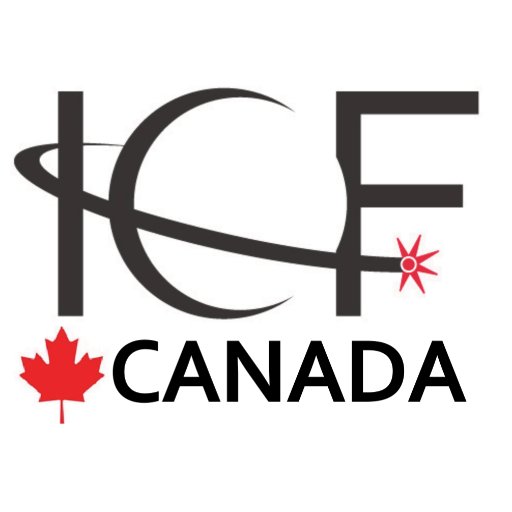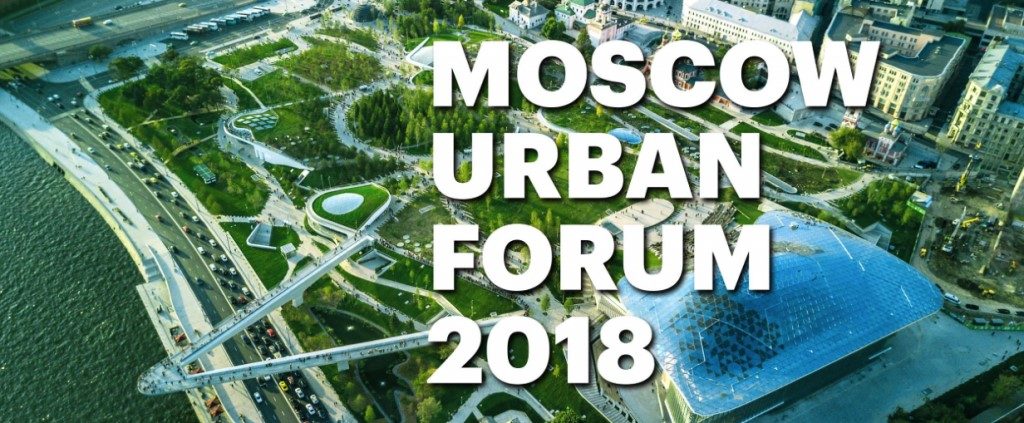
Megacities of the Future
Global Perspectives from the Moscow Urban Forum
From July 17-22, 2018 Moscow hosted a massive global forum to discuss the future of cities, especially megacities, as well as launched a new conference center in the heart of Moscow’s newest park in 50 years, Zaryadye Park. Representatives from 50 countries attended the Moscow International Urban Forum. Over 10,000 delegates took part in the business programme, which took place immediately following the World Cup in Moscow. The city was ablaze in colours, lights and people from all over the world. ICF Canada’s John Jung was invited to speak at the Moscow Urban Forum along with several other Canadian speakers namely former Toronto Mayor, David Miller (who is now the North America Regional Director and C40 Ambassador for Inclusive Climate Action): City of Toronto Chief Transformation Officer, Michael Kolm; author Richard Florida; and KPMG’s Executive Director, Cities Global Center of Excellence, Alan Mitchell. International speakers included Dutch architect, Rem Koolhaas; Smart Dubai’s Executive Director, Her Excellency Aisha Bin Bishr; former President of Mexico, Felipe Calderón; Vice Chairman, General Motors, Bob Lutz; Mayor of Moscow, Sergey Sobyanin; and even Russian Federation President, Vladimir Putin; as well as several other mayors, presidents and corporate thought leaders. The business programme of the 2018 edition of the Forum gathered together federal and city authorities, architects, business leaders, researchers, representatives of city administrations, urban activists, urbanists, and start-ups. 125 foreign speakers and 291 Russian speakers spoke at 87 plenary sessions, panel discussions, presentations and master classes at the Forum related to the most urgent issues on the development of future megacities. Over 100,000 participated in the parallel community festival in the park.
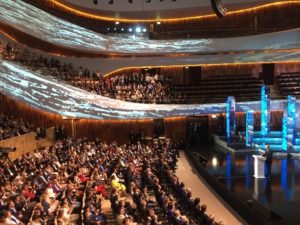
The Moscow Urban Forum 2018 focused on the future of cities, especially Megacities. The Manifest of this Forum stated:
The world’s largest cities, including Moscow, have undergone major changes over recent decades. The drivers of these changes, among others, are globalization, which has opened for the world regions that for a long time have been isolated, the boom in consumerism in the developing world, the change in the economic and technological paradigm, the development of the knowledge economy, and migration process. In order not to lose out in the competition for finance, technology and talent, and often just to continue to function, for example by not suffocating under a transportation collapse, megacities have had to initiate vigorous change. In terms of the speed and decisiveness of changes aimed at modernizing the urban environment, Moscow has shown itself to be the undisputed leader. Transportation reform, the development of public spaces, the emergence of a world-class entertainment industry, urban development projects with the involvement of the world’s best architects − all of this has been realized in less than a decade. Many changes have taken place at such speed that the city has not yet fully realized what has occurred. One of the tasks of the discussions at this year’s forum is to record the results achieved by Moscow and other major megacities, to consider their effects, to understand the nature of a modern metropolis that has experienced a wave of transformations, and what determines its viability.
The renovation of the urban environment of cities that are in essence remnants of the Soviet era is undoubtedly a highly important task. However, life does not stand still. The world’s awareness of the scale and depth of environmental challenges, “human” problems such as the aging of the population, migration, inequality, the increasingly stressful pace of life, the unprecedented impact of technology on all spheres of life, and international tensions − major cities at minimum have to adapt to these realities and, ideally, become leaders in resolving mankind’s most pressing problems. Megacities already play a disproportionately large role in the economies of individual countries and the global economy as a whole. Their size and economic and political might are likely to continue to grow. They will have to achieve an understanding of themselves in the context of a rapidly changing world and correspond to the new reality. World history shows that no great city is immune from crises. An awareness of the real challenges and an ability to formulate an attractive and unifying vision of development, to become leaders of new social, managerial and technological trends, is what has always ensured and will continue to ensure the prosperity of megacities.
Moscow, which has successfully implemented a large-scale program to transform the industrial urban environment, will inevitably face the challenge of remaining a competitive megacity in the new world, where everything is determined by the quality of human capital. People, who constitute the most important and most fluid asset of the modern economy, want to live in convenient, beautiful and safe cities. They want to be able to lead a healthy lifestyle and have access to entertainment. But no less importantly, and perhaps even more so, they want to live and work in cities that have the ambition to do more than provide for their needs. These people are able to resolve large-scale tasks, they want to be involved in something important: whether it is contributing to resolving global environmental problems, creating breakthrough technologies or masterpieces of new art, and they want to influence what is happening in their living space. Competition among leading megacities is shifting to the sphere of the striving for substance and meaningfulness in the life of citizens, and their involvement in what is happening. The Moscow Urban Forum 2018 is intended to discuss and define this new space for life.
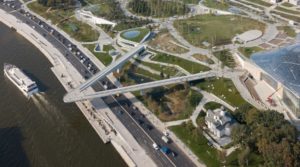
Opening the second day of the Forum, Vladimir Putin stated that cities are important to Russia’s growth and that Moscow sets the standards for the development of modern megacities. Claiming that Moscow has become a true trendsetter in terms of the quality and comfort of the urban environment, he said: “During a short period very large, if not grandiose changes have taken place in the capital. New social, business, cultural and living spaces are being formed. Public transport infrastructure is changing, becoming more convenient and accessible: from the Metro and buses to modern digital platforms for taxis. I know that the Moscow authorities plan to continue the program of creating a high quality urban environment, restoring the comfort of Moscow’s streets, while making all of Moscow’s districts as comfortable as the historic center. And these are not just new objects and improvement work – changes to the urban environment in fact even change people’s worldview, well-being and mood,”
The Russian President also had a perspective on the rest of Russia. He argued that liveable communities should not be restricted to big cities. He noted that it is important for rural regions to also transform, citing that rural regions need the tools and technology to be able to be equally successful. He added: “We are talking about a serious increase in the volume of housing construction, renovation of the urban environment, formation of transport and digital infrastructure, resolution of environmental problems, the development of healthcare, sports and education facilities.” To do this, he said, Russian cities must attract the best Russian and foreign experience and attract the best specialists in their fields. He stated: “The younger generation, young people, and in fact people of all ages who are not afraid to dare to propose original and non-standard solutions, must definitely participate in the creation of future cities.” Putin also favored the idea to develop vacant and derelict lands and buildings in cities and to pay special attention to the ecological well-being of cities. He proposed that technology must be introduced into cities and regions to protect the environment, aid in modern processing and recycling of waste, support the modernization of industrial facilities, housing and communal services and to create a comfortable and liveable environment. He lauded the citizens of Moscow and its Mayor, Sergey Sobyanin for the successful transformation of Moscow over the past decade.
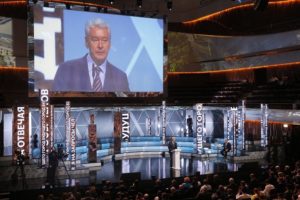
In his speech during the Opening Day, the Mayor stressed that cities of the future should be sustainable, inclusive, and built with due regard for the interests of all citizens. He argued that “the sustainable development of the megacities of the future is impossible without finding answers to the three challenges presented by the modern world: increasing the connectedness of agglomerations, resolving environmental problems, and developing “Smart City” projects”. According to a news release following the event, his three challenges were itemized:
- Connectedness of agglomerations – this is not a whim and trend, but a vital necessity for large cities, the Moscow Mayor is convinced. The life of a big city is impossible to imagine without fast convenient transport. Twenty million people live in the agglomeration of the Russian capital, and the metropolis has 35 million people; convenient transportation links are vital for them. Today in the metropolitan region railways are being included in the orbit of city transport, noted Sergey Sobyanin.
- Solving environmental problems is a complex task, which includes the development of public transport and the use of new technologies in housing construction, as well as programs for sorting, processing and recycling garbage, said the Mayor of Moscow. Ninety percent of harmful emissions in Moscow come from private cars, so an increase in the percentage of residents using public transport will directly lead to an improvement in the environmental situation in the city. Each new technology introduced directly affects the health of Muscovites, Sergey Sobyanin declared.
- The realization of the “Smart City” program will allow the creation of the most convenient, accessible and personalized virtual environment for Muscovites. It will improve the efficiency of city management through broad analysis of large data and the introduction of artificial intelligence, Sergey Sobyanin noted.
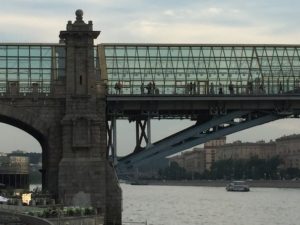
At the same time as the Moscow Urban Forum with its focus on Megacities, the city held a wonderful festival in Zaryadye Park, attracting thousands daily, with the theme is “Connect Generations”. The park was designed by the same US-based firm that designed the High Line in NYC. The programme was divided into three parts: the lecture and educational part of the Festival was aimed at providing answers to vital questions about the future of cities with the participation of famous Russian and foreign architects, economists, scientists and business representatives by means of lectures and discussions. As part of the cultural and entertainment programme there were premiere screenings of films about the world’s megacities, an urban start-up competition, theatrical, musical, urban performances and workshops. Visitors were invited to taste street food from Moscow’s best start-up eateries, participated in walking tours around the capital city, invited to dance on the stage of the amphitheatre and attend nightly concerts with artists from all over the world in one of the most dramatic park settings in the world, overlooking St Basils, the Red Square and the Kremlin along the Moscow River.
For more information see: http://mosurbanforum.com/
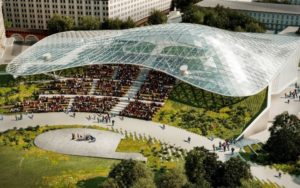
![]()
![]()
Want to have a voice in iCommunity.ca, the official newsletter of ICF Canada? Please send your blogs, announcements and other interesting content to John G. Jung at [email protected]
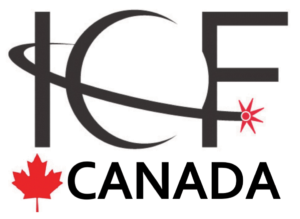
ICF Canada 1310-20 Bay Street Toronto, Ontario M5J 2N8 www.icf-canada.com
Contact: John G. Jung at [email protected] 1-647-801-4238 cell
Want to change how you receive these emails?
You can update your preferences or unsubscribe from this list
